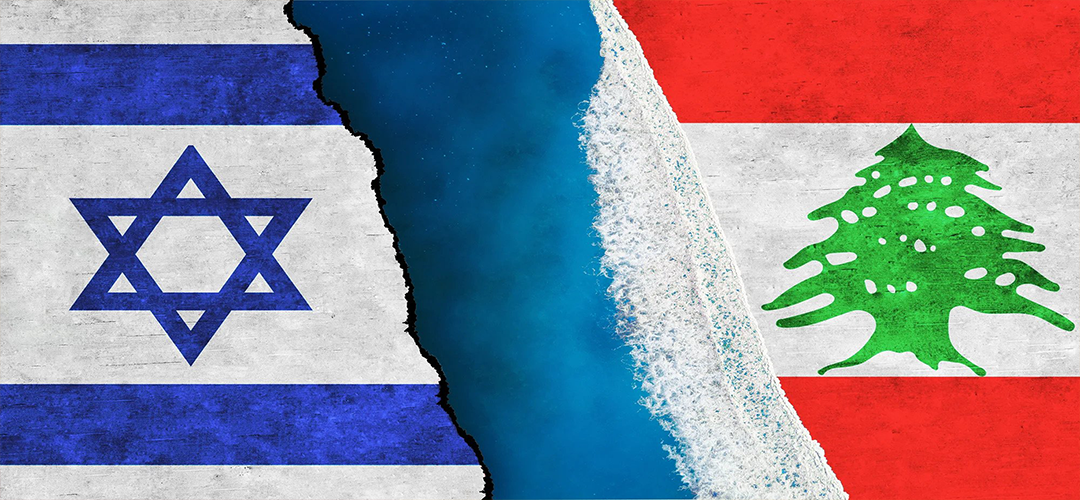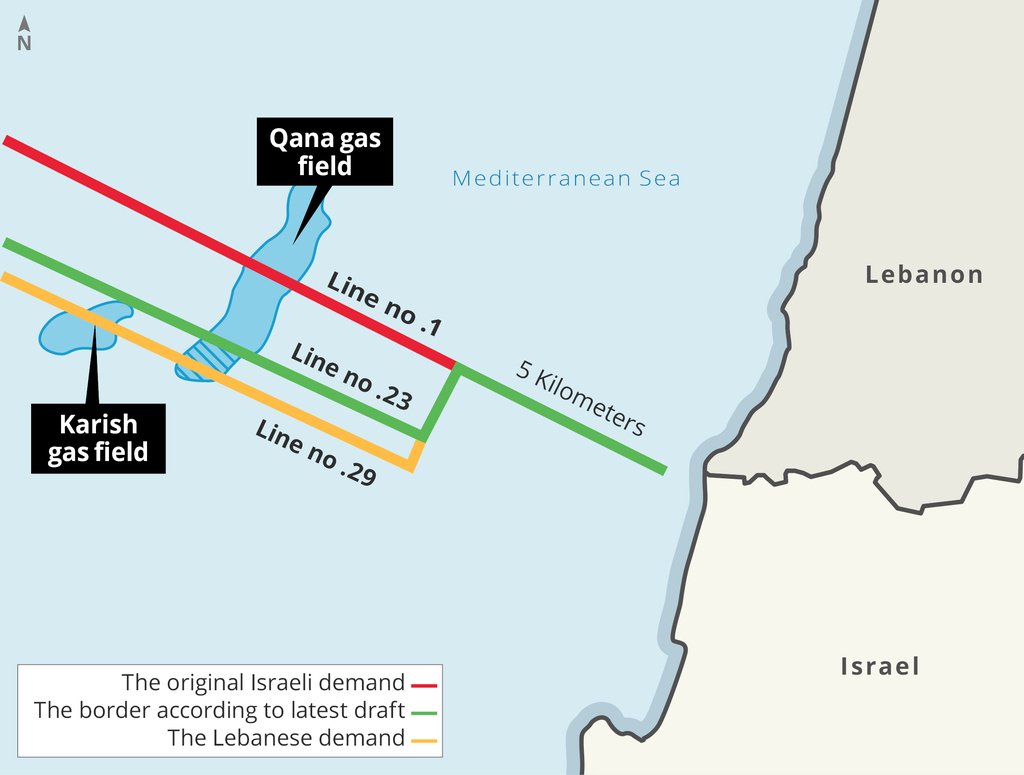A MINI ABRAHAM ACCORDS?
October 15, 2022 | Expert Insights

Geopolitics in the Middle East has always revolved around energy as a tool of collaboration and contestation. One such historic partnership is currently underway between the Israelis and the Lebanese. The two countries' leaders settled earlier this week to end a protracted dispute over their maritime border demarcating rich gas fields in the Mediterranean. Depending on one's political perspective, the deal has received both bouquets and brickbats.
In short, the agreement would de-escalate military tensions and provide Lebanon's crumbling economy with much-needed relief. Mediated by the United States, the deal shows Washington's unstinted efforts to stabilise the periphery of its staunchest Middle Eastern ally Israel.
Background
Since 1948, Israel and Lebanon have been at war. The ongoing conflict was further complicated about a decade ago when both nations made overlapping claims in the Mediterranean Sea, including the Karish gas field and the potential gas resource of Qana. In 2011, Israel discovered two gas fields off its coast, which may make it a net energy exporter. With its appetite for greater energy sources vetted, Israel was ready to grab a larger piece of the Mediterranean gas reserves.
Although negotiations over the control of the disputed maritime boundary have continued since 2020, faceoffs between Israel and Lebanon have regularly occurred. Israeli gas manufacturing vessels have been threatened by Hezbollah's armed cadre at Karish, while Israeli Defence Forces (IDF) have been knocking out their drones from the skies.
Last week, the U.S. energy envoy Amos Hochstein publicly unveiled the final copy of the agreement, Washington's top mediator. Since both sides stand to gain if the ample gas reserves are exploited mutually in harmony, the recalcitrant Hezbollah, too, has reluctantly given its consent to the deal with its hated enemy.

Analysis
The accord provides a relatively simple solution: Israel preserves the Karish field, which had not previously been much in question, and is free to drill there. The Qana field, further to the north, which gas companies haven't explored yet because it was contested, will go to Lebanon; it is yet to be ascertained how much gas might be there. The revenue will be split between Lebanon and Israel to compensate for the small piece of Qana that protrudes into Israeli seas beyond the new border.
Nevertheless, the deal has distinct winners and losers. For Israel, it touts the accord as enhancing regional stability. Israel will benefit from a degree of peace in the Eastern Mediterranean, enabling it to meet the nation's electricity needs from domestic sources, export energy, and contribute to the solution to the European and global energy problem. It would also end Hezbollah's threats to attack Israel's gas infrastructure in the Mediterranean or launch rockets into the Israeli heartland in retaliation for delaying the maritime agreement.
For Lebanon, if significant gas is discovered through exploration, the revenue might aid in resolving Lebanon's terrible financial condition, which has resulted in daily power outages and the country's failure to acquire fuel. This agreement will give Lebanon a new opportunity for foreign direct investment, specifically in the energy sector. It will also allow Lebanon to start exploring hydrocarbon resources in the Mediterranean, as it is the only Mediterranean nation that has not yet done so.
Counter View
On the contrary, the agreement will probably accomplish exactly what Hezbollah does not want, strengthening the Lebanese state and raising expectations for future substantial economic gains. For Iran and Hezbollah, a weak Lebanese state that cannot cater to the needs of its citizens is beneficial. Furthermore, Hezbollah's substantial social assistance programmes make it simpler for the organisation to maintain its hold over the Shi'ite population when the state is helpless, poor, and unable to provide for its people.
Hezbollah and Iran are probably highly frustrated that there is currently little they can do to prevent the implementation of this accord. This accord will strengthen Lebanon and the Lebanese state, a development that Hezbollah and Iran detest.
Another fly in the ointment is the highly corrupt political system prevailing in Lebanon that has ruthlessly exploited the tiny nations' resources and foreign aid to feather their nests. The avaricious establishment may again grab the newfound national wealth with little reaching the man on the street.
Assessment
- The agreement, if formally ratified by both sides, is anticipated to ease gas extraction from the eastern Mediterranean Sea and avert the imminent prospect of violence between Israel and Hezbollah militants in Lebanon.
- It's a far cry from a peace accord. However, Israel expects the agreement would bring security to its contentious northern border, and Lebanon hopes the potential gas it finds will be able to fix its ailing energy supply and a flagging economy.
- According to the narrative that Hezbollah and Iran are attempting to propagate, the "Great Satan" is working against Lebanon's national interests. The idea that the U.S. was able to help Lebanon achieve substantial milestones in this arrangement runs antithetical to that. This does not portend well for the agreement in times to come, especially when Lebanon’s immediate economic crisis has been staved off.








Comments